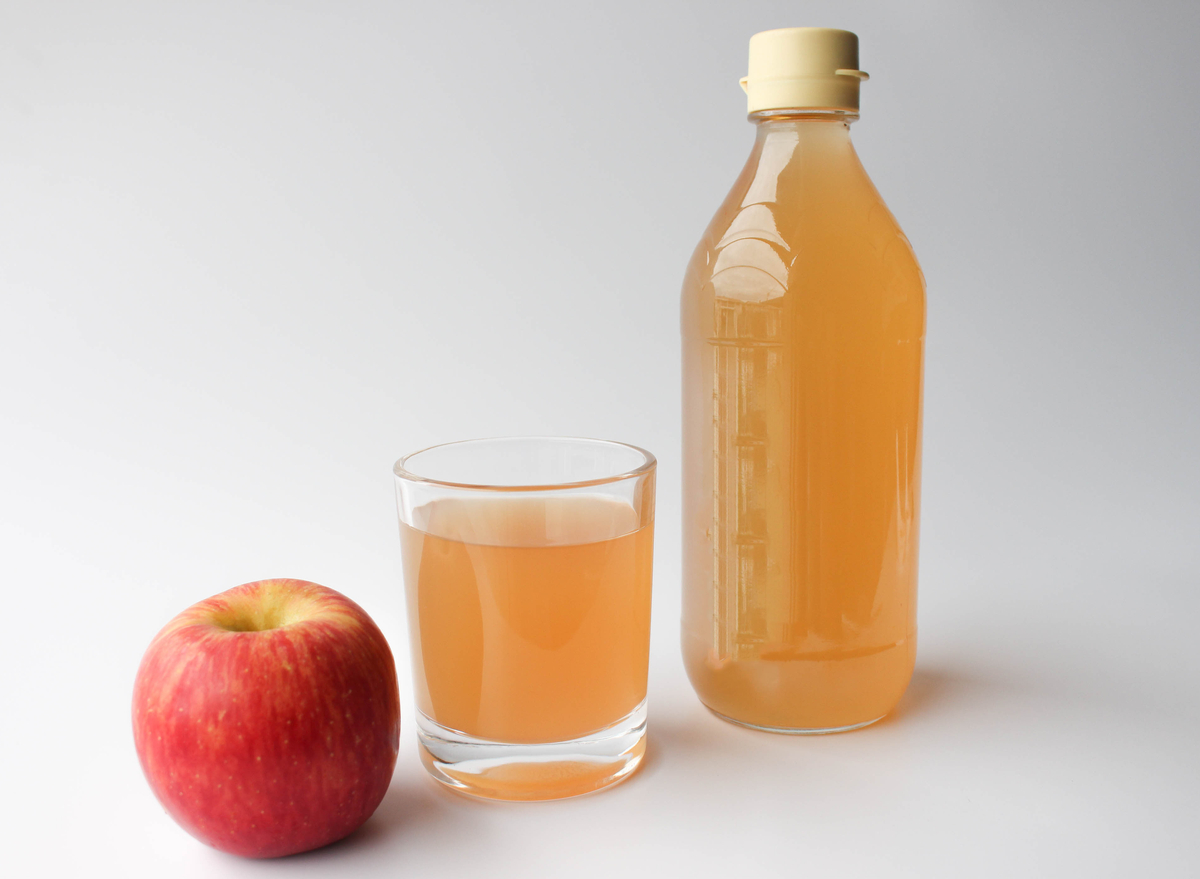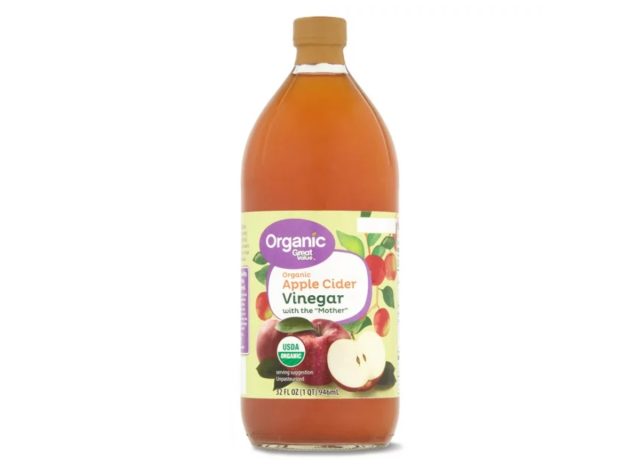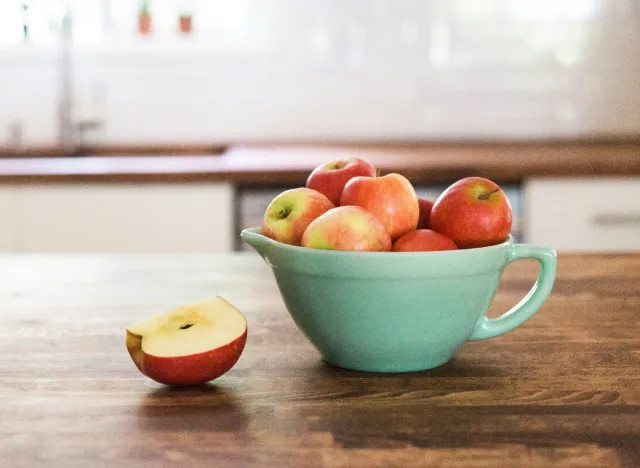Why Is Unfiltered Apple Cider Vinegar Better Than Filtered?

In the world of wellness, a bottle of apple cider vinegar (ACV) is the most important ingredient you can have in your kitchen pantry. From improving digestion to curbing sweet cravings to shiny, healthier hair, ACV is the ultimate health tonic. But when it comes to buying a bottle, there are a few key things to keep in mind so you don’t make the mistake of picking up the wrong kind of ACV. Read up on these shopping and cooking tips, and then find out if these top 15 Myths About Apple Cider Vinegar are actually true.
Look for the Haze

When you see some haze in a bottle, it’s a sure indication that it’s packed with gut-boosting bacteria. Unlike filtered varieties, unpasteurized, unfiltered apple cider vinegar has a murky appearance, which indicates that it has gut-boosting bacteria. Unpasteurized simply means that it wasn’t treated with heat, which can kill the good bacteria.
Candice Kumai, a renowned chef and author of Kintsugi Wellness: The Japanese Art of Nourishing Mind, Body, and Spirit, says, “I love Nature’s Intent Organic Apple Cider Vinegar because it’s raw, unfiltered, unpasteurized and contains the “mother,” which is the strand-like sediment rich in proteins, enzymes, and gut-friendly bacteria.”
Choose Organic

Organic, raw apple cider vinegar uses high-quality ingredients that are most likely sourced from farms that have traditionally grown apples. Unfiltered, unpasteurized ACV is also most likely organic, and it tends to have a bolder and richer apple flavor than the filtered varieties. Kumai says, “I trust brands like Mizkan with their vinegar, as it’s a family-owned company that’s been making vinegar for eight generations. Look for quality labels first and a brand name that has been in the business and puts quality and integrity first.”
Be Mindful of the Expiration Date

Despite all the hearsay out there, you don’t actually have to refrigerate your ACV. In fact, the acidity of the vinegar keeps other bacteria from growing in it. Still, it’s important to check the “best by” and expiration dates of your apple cider vinegar. Kumai says, “You can keep your ACV for up to two years if it’s stored properly. For best flavor and to preserve the quality of the vinegar, you can store your bottle tightly capped and in a cool, dry, dark place, like in a cupboard or pantry.”
When it comes to enjoying ACV, Kumai’s favorite recipe is her Creamy Peach and Berry Smoothies. She makes it with sweet potato, frozen organic peaches, a frozen banana, freshly ground ginger, cinnamon, collagen powder, unsweetened almond milk and one or two tablespoons of apple cider vinegar. Kumai also likes using ACV in her salad dressings or to finish off marinades and soups. Kumai adds, “I always use ACV as a leavening agent in my baked vegan cakes! ACV is versatile, beneficial, lasts forever and adds the perfect balance of acidity to all of my fave eats!”








